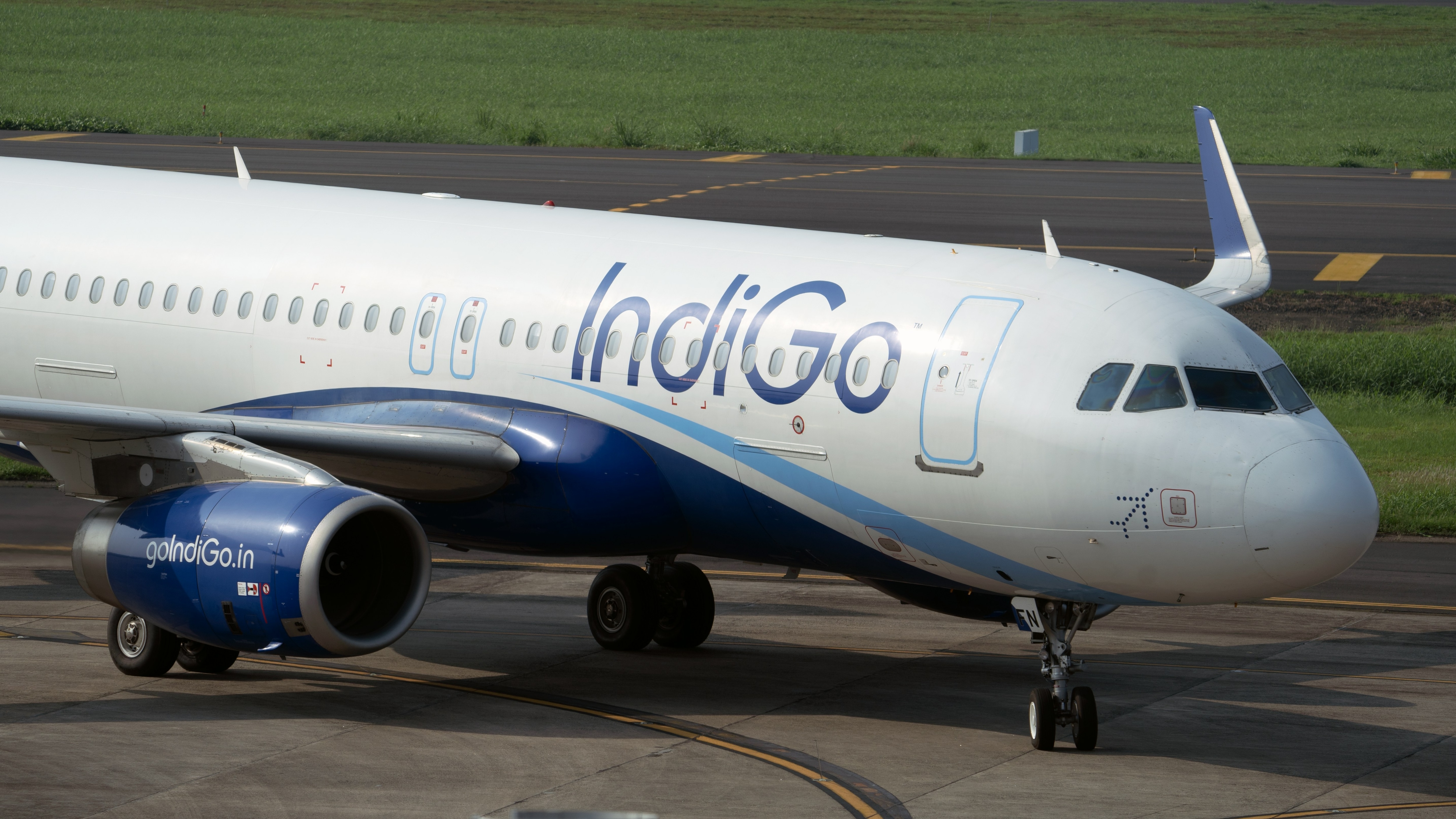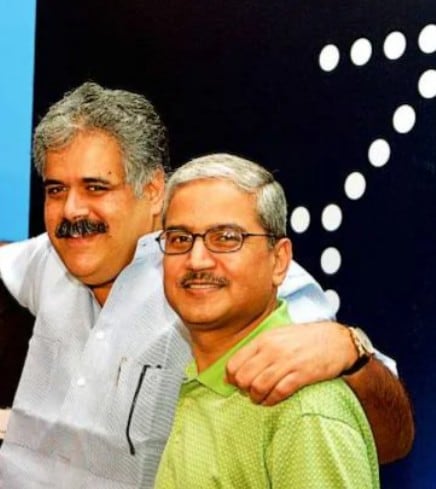
IndiGo grabbing attention is hardly new, but right now its name dominates business pages for two reasons.
One, the airline declared a rare quarterly loss, and not because its business model cracked. Revenue from operations grew by 9.3 percent to Rs 18,555 crore, and excluding forex impact, IndiGo was still in profit with Rs 103.9 crore. The culprit was the sharp depreciation of the rupee against the dollar, which led to a staggering forex loss of Rs 2,892 crore.
Two, while the aviation giant recalibrates its financial flight path, co-founder Rakesh Gangwal has almost fully walked away from the airline he helped build into one of the most profitable, efficient, and influential carriers in the world.

IndiGo grabbing attention is hardly new. Photo: Unsplash
This move comes as he has nearly completed selling down his stake, marking a quiet end to one of corporate India's most complicated founder exits. His shareholding fell from over 36 per cent in December 2021 to under 5 percent by October 2025. In 2025 alone, he sold around 9 percent, including a Rs 6,800-crore block sale in May and another stake sale worth around Rs 7,020 crore in August, totalling cumulative proceeds above Rs 45,000 crore from his exit journey.
IndiGo is in transition. The business is dealing with currency shocks and infrastructure disruptions like the Delhi airport runway closure. At the same time, its ownership structure is shifting, and it is preparing for a bold global expansion, including induction of long-range Airbus A321 XLR aircraft in December 2025. It is also working towards a natural forex hedge by growing international routes to earn in stronger currencies. In short, the airline is evolving, but the shadow of a fractured co-founder relationship looms large.
The exit of Gangwal was not about the money, it was after a friendship and partnership turned sour.
How A Partnership Turned Turbulent
IndiGo was born from a partnership between Rahul Bhatia and Rakesh Gangwal, two men with complementary strengths in 2005. Bhatia brought strong local business acumen and aviation service experience. Gangwal brought global airline expertise, having previously been chief executive at US Airways and operating at senior levels at United Airlines. Together, they created an aviation powerhouse that disrupted travel for Indian consumers, introduced efficiency benchmarks, round-the-clock cheaper flights and became a global case study in disciplined airline management.

Rakesh Gangwal and Rahul Bhatia. Photo: IndiGo
But somewhere along the way, trust broke down. Gangwal began questioning the extent of Bhatia's control over IndiGo via InterGlobe Enterprises, particularly around related-party transactions and board independence. For Gangwal, transparency was non-negotiable. He reportedly believed that founder control should not override governance, especially in a publicly listed entity of IndiGo's scale and impact.
In 2019, Gangwal approached SEBI with complaints and later moved to arbitration in London, after Bhatia sued Gangwal, and vice versa.
The bone of contention? The shareholders' agreement embedded veto rights that effectively locked both founders in a governance stalemate and restricted freedom to sell shares.
In 2021, after arbitration, these restrictive veto clauses were dismantled. This paved the way for Gangwal to exit freely.
In February 2022, Gangwal resigned from the board, and announced that he will gradually exit the company in the next 5 years. So, he began quietly selling his stake, gradually stepping back while ensuring the market absorbed his exit without shock or drama.
What Triggered The Exit
Gangwal's rationale for leaving was striking. IndiGo was not collapsing. It was not losing market share. There was no financial distress. In fact, the airline continues to be dominant in India and is preparing for its largest international expansion phase. Analysts, investors, and even rivals often call IndiGo a rare profitable airline story in a sector globally famous for instability.
Gangwal's exit was driven by principle. He believed governance standards must evolve as companies scale. His discomfort stemmed from concentrated control, perceived conflicts of interest, and board independence issues. He did not agree with the disproportionate power balance. So he chose to walk away rather than stay and fight forever.
The Numbers
Even as Gangwal made his exit moves, IndiGo was flying high operationally but managing certain headwinds.
Key numbers from the recent quarter include:
- Revenue from operations: Rs 18,555 crore, up 9.3 percent
- Total expenses: Rs 22,081 crore, up 18.3 percent
- Net loss: Rs 2,582.10 crore, almost entirely due to Rs 2,892 crore forex loss
- EBITDA: Rs 579.5 crore, down 64.2 percent
- Adjusted EBITDA excluding forex: Rs 3,791.6 crore, margin rising to 20.4 percent
Operationally, the airline remains strong. Grounded aircraft numbers have fallen sharply from about 70 to around 40 thanks to damp leases and better fleet availability. The XLR induction and expanded global routes aim to improve revenue mix and create a currency hedge.
CEO Pieter Elbers noted that despite currency pressure and infrastructure disruptions, IndiGo is building momentum. The fundamentals are intact. The ambition is global. Yet the founder story was unravelling in the background.
Now, What's Next For IndiGo?
Gangwal's exit signals an evolution in India's corporate landscape.
For IndiGo, it marks a shift from a promoter-driven structure towards more institutional ownership. That could benefit governance, transparency, and investor confidence, although leadership strength remains critical.
It also opens competitive opportunities in the aviation market. A more diversified ownership may eventually translate into different strategic choices, though IndiGo's culture of cost discipline and efficiency is expected to remain firm.
As of now, Rakesh Gangwal's exit from IndiGo by gradually selling his stake has resulted in short-term stock volatility for the airline, though the impact is cushioned by the company's market leadership and the phased nature of the exit. The sale is seen by some as a sign of institutional strength, while it may also pressure the remaining leadership to focus more on profitability and cost control.
As IndiGo flies into its next phase, the airline faces headwinds like forex swings, infrastructure strain, and global expansion complexity. Yet its biggest test may be proving that scale and good governance can coexist in modern Indian aviation.
Track Latest News Live on NDTV.com and get news updates from India and around the world

